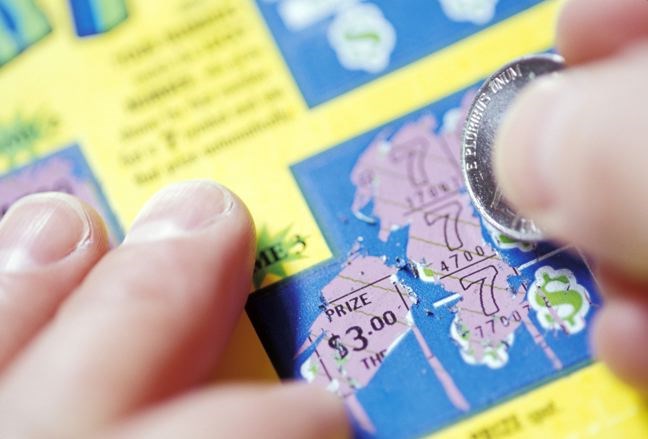The B.C. Lottery Corporation admits their games have the potential to damage lives but, in the same breath, they're proclaiming what good clean fun those same games are.
On the one hand, BCLC is talking a good game about how seriously it takes social responsibility and the effort it takes to identify problem gamblers and get them support and treatment for their addiction. The BCLC proudly declares that Game Sense has been named one of the best responsible gambling programs in the world by the World Lottery Association.
On the other hand, Game Sense and gambling awareness week are also telling B.C. residents how much fun can be had through gambling, whether it's buying lottery tickets, playing at the casino and taking a chance online.
It was Gordon Campbell who turned everyone in the province into gambling addicts. The former premier loosened the gambling regulations and encouraged the spread of gambling, allowing more opportunities for residents to throw their money away on games of chance, both in their communities and even in their homes.
As a result, the provincial government needs its fix of gambling revenues. Gaming delivered $1.128 billion to the provincial coffers in 2012/13 (on total revenue of $1.64 billion), the seventh consecutive year BCLC recorded net income of more than $1 billion. Victoria took $706.8 million of those 2012/13 gambling earnings and devoted it to paying government expenses, primarily in health care and education.
The local governments that have a casino or community gaming centre are also hooked. They get a 10 per cent cut out of the net revenue from the slot machines. That turned into a nice $2.6 million payday for the City of Prince George in 2012.
Community groups are also addicted to gambling revenues. More than 5,000 arts groups, youth sports associations, parent advisory councils for schools, and other vital non-profits shared $135 million in gaming grants in 2012/13.
The more than 37,000 B.C. residents directly and indirectly employed by gaming are in on it, too. And then there are the media outlets like The Citizen that enjoy the advertising revenue when the jackpot hits $50 million and the BCLC wants everyone to know it.
By association, every resident and business in the province can't get enough gambling goodness. Without those gambling revenues, personal and corporate taxes would be much higher to compensate for that lost government income.
So Campbell was right. Gambling has done much good across B.C.
Yet there are still those problem gamblers.
The BCLC tells us not to worry about it, since problem gamblers make up just 4.6 per cent of the gambling public. That doesn't sound like much, until the number gets some context put behind it. The BCLC reports that 80 per cent of residents gamble at least once per year. With about 80,000 residents in Prince George and area, that means 64,000 played an official game of chance last year. If 4.6 per cent of those 64,000 people are problem gamblers, that works out to 3,000 people, just in Prince George alone.
That's 3,000 people whose gambling has become so damaging to their personal lives that it's also affecting their families and their employers.
Since 4.6 per cent of the gaming public are problem gamblers, it would seem obvious for the government to spend about $50 million each year (4.6 per cent of $1.1 billion) towards awareness and treatment programs. Instead, the government devotes just $4.5 million per year towards mitigating the negative personal and social costs of gambling.
While a small but significant group of people pay dearly for the addictive qualities of gambling, the rest of the population are still winners, even when their lottery numbers don't match.
And for the person who bought that Saturday 6/49 ticket in Prince George with five numbers and the bonus matching, that's worth a cool quarter of a million. Congratulations, you're a double winner.



